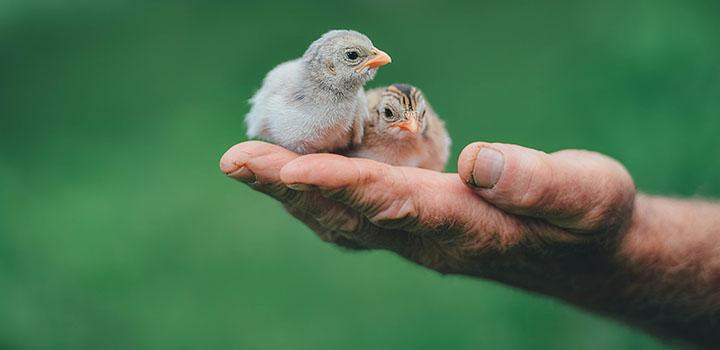Posted by Grange Co-op on 7th Feb 2019
What does it take to raise backyard chickens?
If you’re thinking of raising backyard chickens, there are a lot of factors to consider before buying your first baby chick. While they may be cute, feathery soft, and irresistible in the store – practically begging you through soft chirps to take them home – they also require some work, supplies and commitment to ensure they are well taken care of, happy, and productive.
We admit, raising chi… Read more
Posted by Grange Co-op on 31st Aug 2015
Baby Pheasants, Chukar, and Quail require a brooder temperature of approximately 95 degrees for the first week, dropping approximately 5 degrees every 3 days or so until the end of the brooding period. They will feather out quickly, so they do not require as much heat as chickens and turkeys. Watch them closely to see if they are comfortable: if they cluster under the lamp, they are too cold; if they stay far away, drop their wings and pant, t… Read more
Posted by Grange Co-op on 30th Aug 2015
Baby Guineas require a brooder temperature of approximately 95 degrees for the first week, dropping approximately 5 degrees every 3 days or so until the end of the brooding period. Watch them closely to see if they are comfortable: If they cluster under the lamp, they are too cold; if they stay far away, drop their wings and pant, they are too hot; and if they range all over the brooder, they are comfortable. Always make sure they have a place… Read more
Posted by Grange Co-op on 29th Aug 2015
Baby Ducks (Ducklings) and Baby Geese (Goslings) are fairly easy to raise, if you follow a few simple steps.
The most important thing that many people do not know is that ducks and geese should NEVER have medicated feed. The best thing to feed baby ducks and baby geese is a 21% "non medicated" starter feed. Grange Co-op offers Purina® Gamebird & Turkey Startena® (
1718485) or Rogue Nature's Harmony Organic Chick Starter (10OCS-40OCS… Read more




